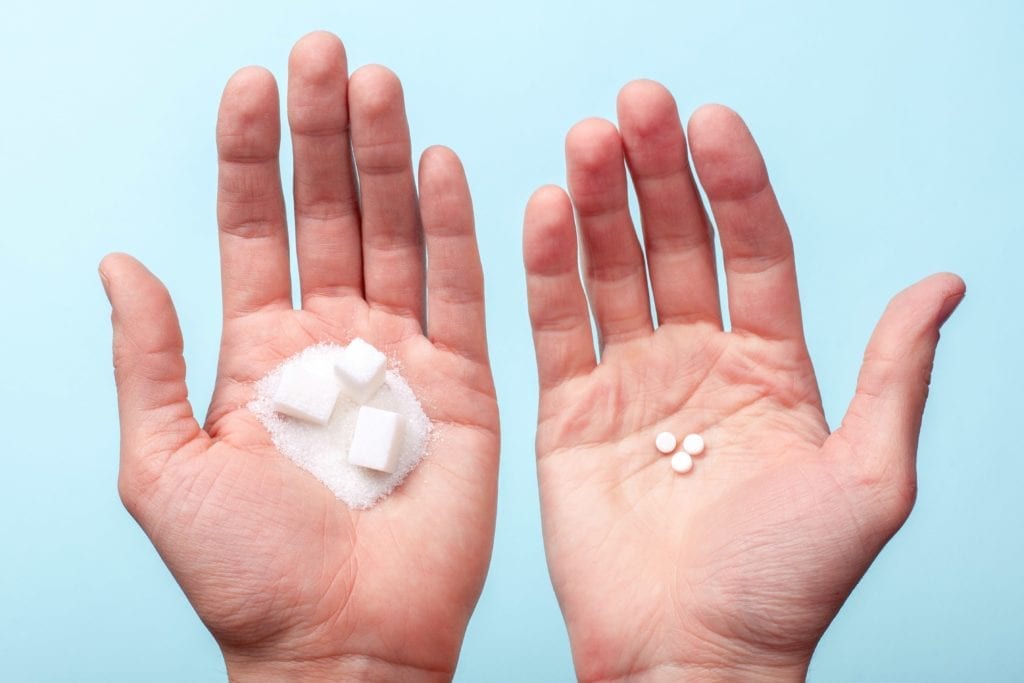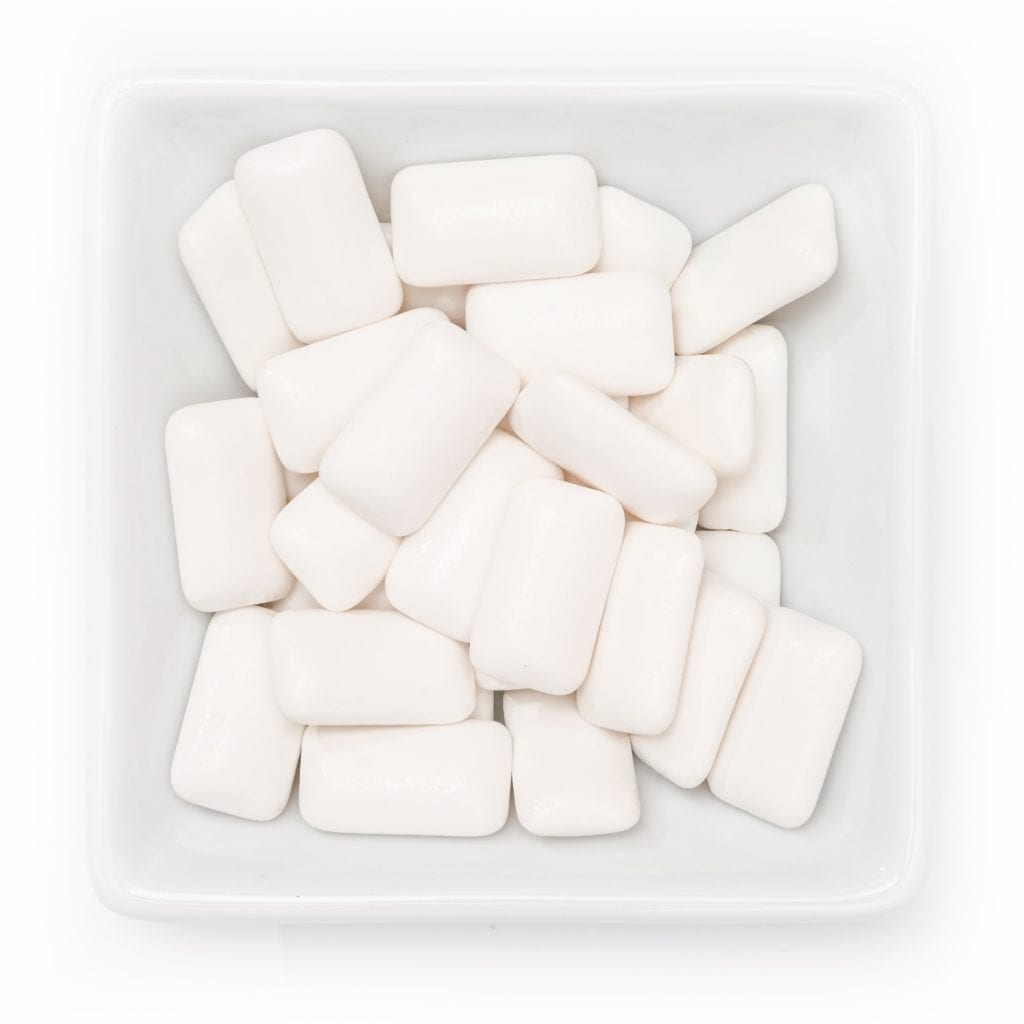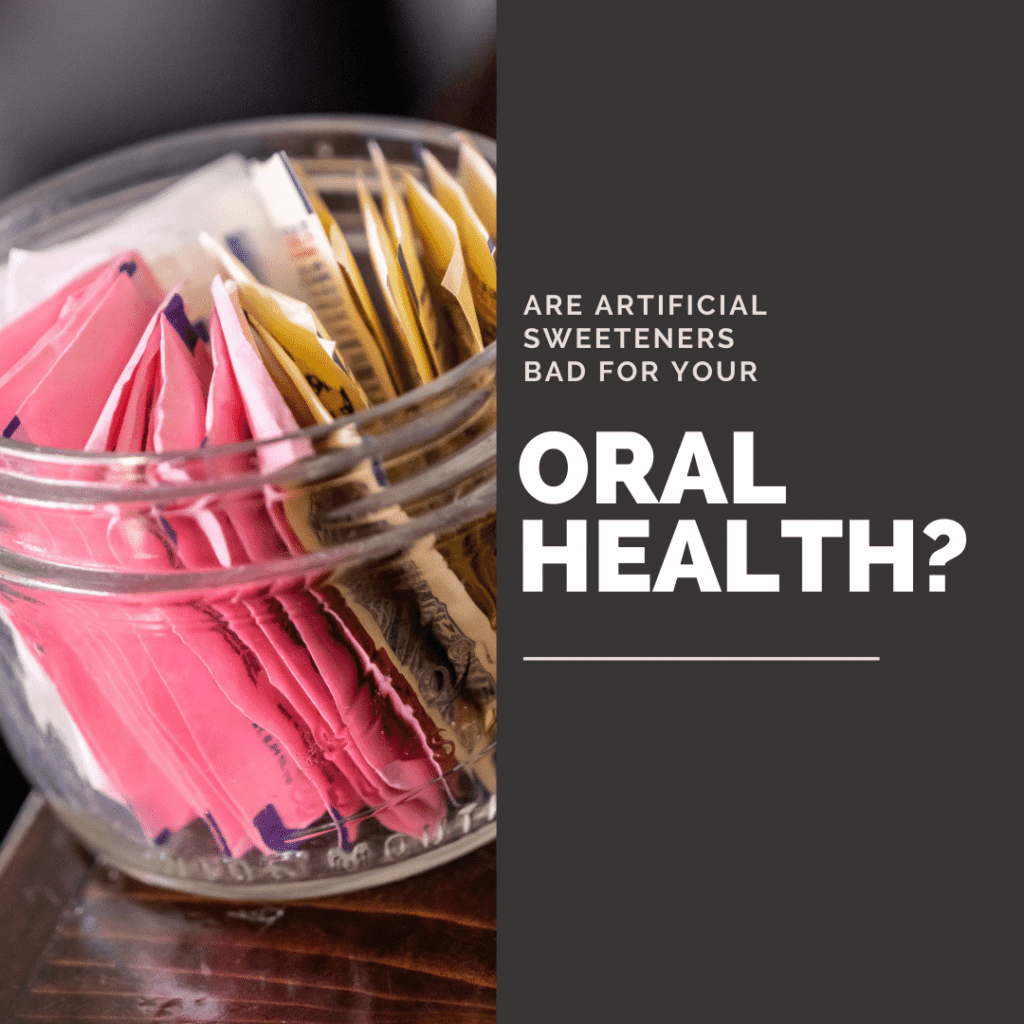Have you ever wondered if sweeteners are bad for your teeth? After all, sugar is sweet and it is one of the most dangerous foods to your oral health. This is because sugar acts as a food source for the bacteria that cause tooth decay and gum disease. When these bacteria consume sugar, they produce acidic waste that erodes the enamel and are more likely to reproduce. This causes the bacterial population to rise, which does more damage to the tooth surface. Overtime, eroded enamel can become decayed and the excess bacteria can lead to gum disease.
Nowadays, however, sugar is not the only ingredient used to sweeten foods and beverages. In fact, some foods and beverages have even replaced sugar entirely with artificial sweeteners. So, just how do these artificial sweeteners compare to sugar in terms of your oral health? Let’s take a look.
What is an artificial sweetener?

To understand the effect that artificial sweeteners have on your oral health, we first need to take a look at what they are. By definition artificial sweeteners are sugar substitutes, meaning they don’t contain any sugar. Instead, they are designed to have a sweet taste while being marketed as “sugar-free” or “diet”. In fact artificial sweeteners are far sweeter than sugar, meaning that not as much is usually used to obtain a sweet taste. This also means that artificial sweeteners are low calorie and some variations don’t add any calories.
Artificial sweeteners are commonly added to foods like candy, puddings, dairy products, baked goods, jams and jellies, canned food, and soft drinks or drink mixes. There are many different types of artificial sweeteners, including:
- Saccharin (Sweet N Low, Sugar Twin)
- Aspartame (NutraSweet, Equal)
- Acesulfame Potassium (Sweet One, Swiss Sweet, Sunett)
- Sucralose (Splenda)
- Advantame
- Neotame (Newtame)
- Xylitol
Are artificial sweeteners bad for my oral health?
Now that we have a better idea what artificial sweeteners are and what foods that are commonly found in, let’s take a look at how they affect your oral health. Since artificial sweeteners are not sugar, nor do they contain sugar, bacteria cannot consume them as a food source. This means that they are not converted into acid waste products, which is a good thing for your tooth enamel.

An artificial sweetener known as xylitol has even been found to have a positive effect on your oral health by reducing the risk of tooth decay. This is because xylitol is a common ingredient in sugarless gum that helps to promote saliva production. When sugarless gum is chewed after meals, this excess saliva helps to rinse the mouth of food particles and neutralize the acids produced by bacteria. Both these things help to reduce the risk of tooth decay.
However, artificial sweeteners are not entirely good for your oral health. In fact, they have one significant flaw that is highly damaging to your tooth enamel. Unfortunately, many artificial sweeteners are also used in coordination with various acids to increase their flavor. This is especially true in fruit and citrus flavored foods and beverages. Although the sweetener itself may not do any damage to your enamel, the citric, phosphoric, or tartaric acid that it is often used with will erode your enamel. Therefore, it is encouraged to limit your intake of artificial sweeteners just as you would sugar. It is also recommended to regularly practice proper oral hygiene to reduce the detrimental effects of artificial sweeteners on your teeth.

Dr. Admar holds dual certificates — a Bachelor of Dental Surgery (BDS) in 2010 from India and a Doctor of Dental Surgery (DDS) in 2014 from Canada. He is now a full time practicing dentist in Kamloops where he provides a variety of services. Dr. Admar spends hundreds of hours in continued dental education to stay up to date in cosmetic and implant dentistry and he has achieved several advanced qualifications.


